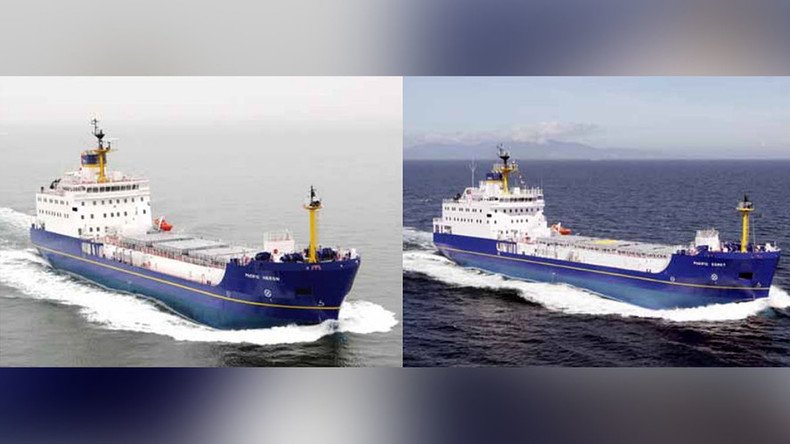2 ships arrive in Japan to carry plutonium to US

Two British ships have arrived in Japan to transport 331 kilograms (730 pounds) of plutonium to the US – enough to make up to 50 nuclear bombs. The shipment comes amid growing concerns over Japan’s vast stockpile of plutonium.
On Monday, two cargo ships, the Pacific Egret and Pacific Heron, arrived at the northeastern coastal village of Tokai, home to Japan’s main nuclear research facility, the Japan Atomic and Energy Agency, AP reports citing local media.
The ships, which are operated by Pacific Nuclear Transport Ltd., will transport the cargo to the Savannah River Site, a US government facility in South Carolina. The delivery of plutonium, which had been used in Japan for research purposes, will be carried out in accordance with a pledge made by Japan in 2014.
Japanese authorities have refused to disclose further details due to security concerns.
Japan has accumulated 47 tons of plutonium –11 of which are currently in Japan and 36 that are waiting to be returned to Japan from the UK and France, where the nuclear material has been reprocessed.
The stockpile is enough to make about 6,000 atomic bombs, AP reports. The ambitions of both Japan and China to use reprocessed plutonium as fuel for nuclear power stations have been a source of international security concerns.
The shipment comes ahead of a nuclear summit in Washington to be held later this month aimed at stepping up non-proliferation efforts.
Japan began construction of its own Rokkasho reprocessing plant with the help of French state-owned company Areva in the early 1990s, but the facility has not been put into operation. In November, its opening was postponed until 2018 so that more safety upgrades and inspections could be carried out.
Before the 2011 Fukushima nuclear disaster, Japan largely relied on nuclear energy, but only two of Japan’s 43 reactors are currently online.













